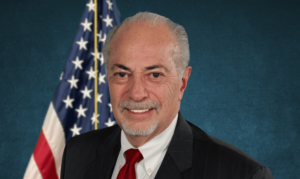District voting — the Fayette County chapter of the NAACP argued for it, and last week a federal judge supported their request.Lawsuit supporters felt it was the only way a black preferred candidate could be elected to a countywide position on the Board of Education (BOE) or Board of Commissioners (BOC).
Supporters frequently point to district voting of U.S. Congress members as justification for their cause, but given the ineffectiveness and reputation of that institution, I question whether that argument is for or against their position.
I certainly support the one man, one vote principle, and that all voices should be heard. I do not agree that district voting is required to achieve that in Fayette County. Here, I believe that a black (or other minority) candidate can win a countywide election.
To do so requires a few fundamentals that apply just as well to white and other race candidates:
• Be a citizen of integrity, with the ability to understand complex public issues, listen to different sides of an issue, form logical conclusions, and coordinate and implement solutions.
• Develop better ideas to confront challenges than your opponent does.
• Communicate your message to voters and inspire their participation on primary/election day.
With the imposition of district voting, we won’t have an opportunity to validate that belief, though; blacks have only participated in about a half dozen BOE and BOC races over the past ten years, and black voter participation was less than 20 percent in one example in the lawsuit that was touted as a clear example of white voter dilution.
No black candidates emerged for the recent 2012 election, where six combined BOE and BOC seats were up for grabs (and five were taken by political newcomers).
As in any large-scale process, it’s not all bad or all good. District proponents welcome the likelihood of reduced campaign costs and chances for a BOE and BOC member to be elected only by voters in their district.
Others recoil at losing their right to vote for all the members who set property tax rates, recommend sales tax increases, decide how money is spent, and what policies are adopted for children’s education. They are also concerned that members elected solely by district voters will subordinate county priorities for job security.
Where to go from here? Is there a process that maximizes the strengths and minimizes the faults of both voting plans? Atlanta City Council, for example, has 12 members elected by district and three elected at large. That provides at least some opportunity for at-large members to support coalitions for beneficial citywide programs and withhold support from those they deem too parochial.
When the lawsuit was addressed during public comment at the May 23, 2013 County Commission meeting, about a half dozen citizens urged the commissioners to accept the ruling without appealing it. Only one citizen rose to point out concerns with district voting.
When considering an appeal, the BOE and BOC members will also have to weigh whether the appeal authority would draw a different conclusion than the ruling judge did.
If you have an opinion, contact a BOC and/or BOE member; I’ll see you at the polls!
Bob Ross
16-year Fayette County resident
Peachtree City, Ga.











Leave a Comment
You must be logged in to post a comment.